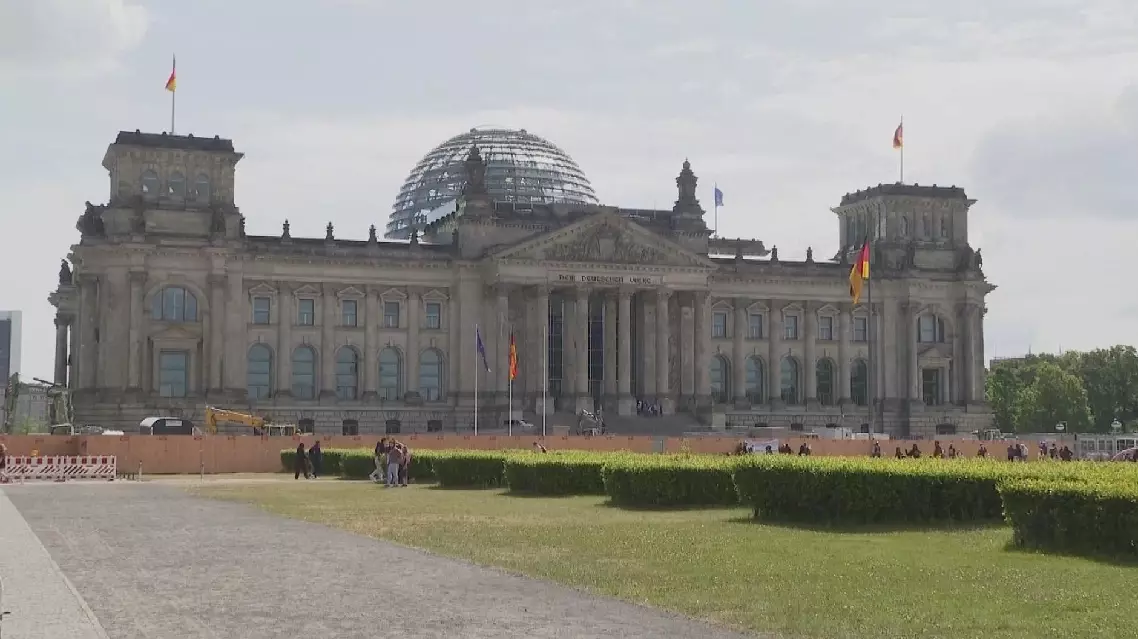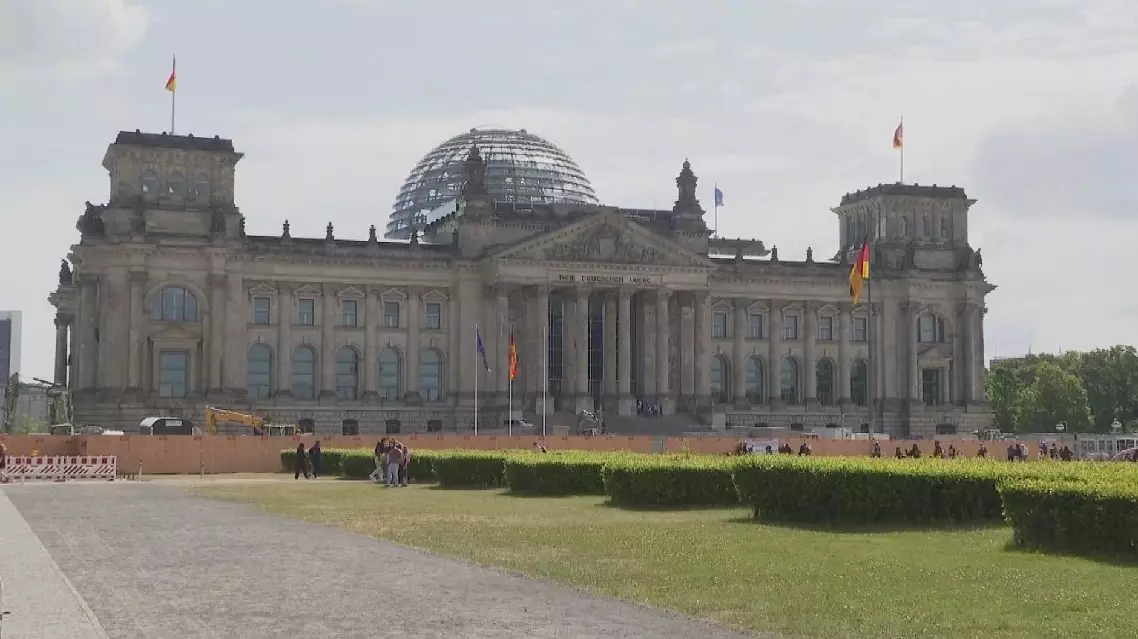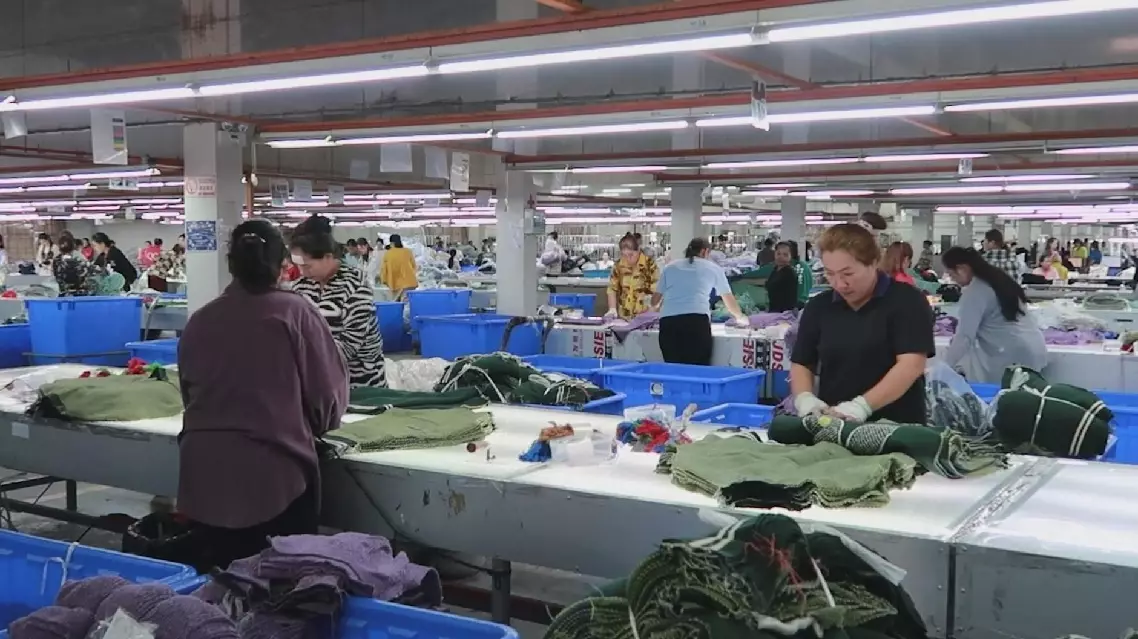Economic sentiment in Germany saw a sharp decline over the last month as the uncertainty brought by U.S. tariffs has seen confidence plunge at the most dramatic level in three years, the Leibniz Center for European Economic Research (ZEW) said in its monthly survey published on Tuesday.
The ZEW Indicator of Economic Sentiment, which gauges the level of optimism on the German markets by collating expert opinions, fell markedly in the April survey. The reading plummeted 65.6 points from the previous month's reading to sit in the negative range at minus 14.0 points. This marks the strongest decline in expectations since the start of Russia-Ukraine conflict in 2022.
ZEW President Achim Wambach said that the "erratic" U.S. tariff policies have greatly increased global economic uncertainty, which is reflected in the economic expectations for Germany.
According to the survey, experts' sentiment concerning economic development in the Eurozone has also plummeted: the indicator fell by minus 58.3 points and is currently at minus 18.5 points. The assessment of the current economic situation of the euro area has deteriorated as well, though less strongly, falling 5.7 points below the March reading to now register at minus 50.9 points.
The economic sentiment released by the ZEW is a monthly survey that captures the expectations of analysts and institutional investors about Germany's economic outlook for the next six months.

Economic sentiment in Germany plummets as US tariffs cloud outlook

Economic sentiment in Germany plummets as US tariffs cloud outlook
U.S. tariffs on Cambodia, which were set at 49 percent, have sparked concerns among the Southeast Asian country's key export industries such as garment manufacturing amid the ensuing economic uncertainties.
On April 2, U.S. President Donald Trump announced the 49 percent "reciprocal tariff" on goods imported from Cambodia, the highest among all countries. Days later, the U.S. reduced the so-called "reciprocal tariff" to 10 percent for 90 days, offering a window period to Cambodia for negotiations with it.
Cambodian businesspeople say the tariffs have the potential to wreak havoc on the country's manufacturing sector, which, according to data from the World Bank, makes up around a fifth of the country's GDP.
"For U.S. manufacturers, definitely, there will be a big impact. If manufacturers are focusing on U.S. products, they are now in the middle. They don't know what they should do at the moment because the tariff now from Cambodia to the U.S. is actually quite high," said Dr. Ben Li, a Hong Kong investor in Cambodia and Chairman of the Cambodia Chinese Commerce Association.
Nevertheless, Li sees the tariff hike as an opportunity to export more Cambodian goods to the European Union, where a majority of Cambodian exports enjoy duty-free status.
"I always say there will be a light (at the end of the tunnel.) Even now, the U.S. tariff is so high, it's going to be so high after 90 days, we don't know. But, there's still a big market to Japan or to the European Union. There's still a big opportunity there," he said.
The Cambodian investor also believes the development of major infrastructure projects will help support Cambodia's economy.
"Especially the new canal and then the new airport, and the railways which connect to China. I believe once the logistics and infrastructure are built up, it can help the whole country's economy. By reducing the transportation costs, it can also mitigate the tariff costs," he said.
Cambodia and the U.S. held their first tariff negotiations on April 16, with more expected to follow. Local experts said the stakes are high for the country's workers.
"If this negotiation fails, there will be a significant impact. It will include the garment and travel goods sector. These sectors consist of about 1,068 factories and 930,000 workers. The income generated from these sectors is about 3 billion dollars per year. So it would significantly impact Cambodia's economy, jobs and incomes," said Chey Tech, a socio-economic research and development consultant from Dynamic Alliance Consulting.
Despite the potential risks, Tech expressed his optimism about a positive outcome, citing Cambodian Prime Minister Hun Manat's letter to Trump on April 4.
"The Prime Minister's letter confirmed that Cambodia would reduce the tariff rate for U.S. goods to 5 percent. Second, Cambodia is the least developed country. Third, Cambodia produces goods that the developed countries won't produce. We asked whether the U.S. would be able to produce these low-cost products. It cannot," said Tech.
In 2024, Cambodia exported goods of 9.9 billion dollars to the U.S., making it the country's largest market, accounting for 37 percent of Cambodia's total exports.

49-percent US tariffs sparks worry among Cambodia's key export industries





















































